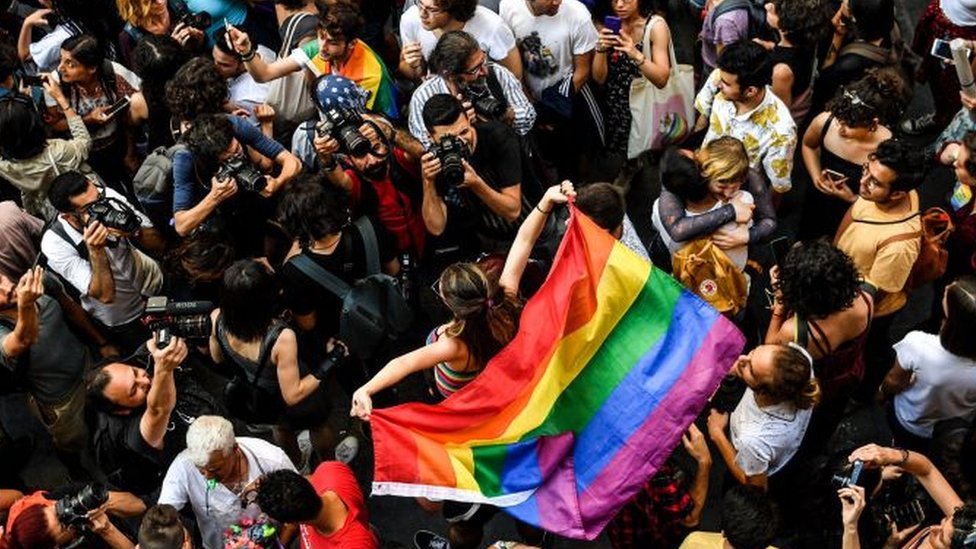
The government is reducing the cost of applying to change legal gender, but will not drop medical requirements.
What does transgender mean?
A trans person's gender identity is not the same as the sex on their original birth certificate.
As babies, our sex is recorded as male or female, based on physical characteristics. (There are some people born with chromosomal or other physical differences that can make this a complex judgement. They may be referred to as intersex.)
Gender is based on the behaviour, expectations and outward presentation typically considered to correspond to someone's sex.
Gender identity is based on self-perception - how we see and describe ourselves, and how we ''present'' to the world.
For example, someone whose sex is female might identify as male, or vice versa.
People who are non-binary do not consider themselves to have a solely male or female gender identity, or take a different approach to gender.
What changes can transgender people make?
Many transgender people live according to their gender identity, dressing and presenting to the world in a way matching that identity and being referred to by their chosen name.
They may also want to apply for changes such as having their birth certificate, passport or driving licence altered.
Some also decide to physically change their body to correspond with their gender identity.
This can involve taking hormone medication and having voice therapy. Some go on to have surgery.
These social, physical and legal changes are known as transitioning.
What can you legally change?
About 95% of applicants go down a standard application route, the main requirements of which are:
- A declaration that they will live permanently in their acquired gender
- A medical report of a gender dysphoria diagnosis
- A medical report of any hormone treatment or surgery, or any planned treatments
- Evidence they have lived full time in their acquired gender for at least two years, such as copies of their passport and driving licence
- Applicants also must be 18 or over and pay a fee of up to £140
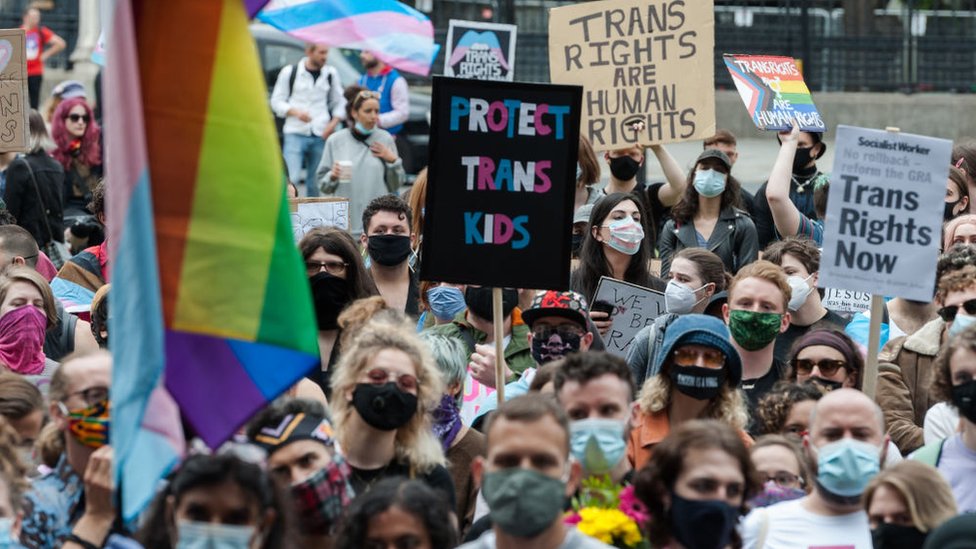
There was speculation that the government might scrap the medical diagnosis element for England and Wales and allow people to legally change gender through self-identification.
This suggestion caused heated debate. The consultation was extended because of the high volume of responses, with at least 53,000 submitted.
The government has responded to the consultation, saying it believes the Gender Recognition Act strikes the right balance between legal checks and support for people who want to change their legal gender.
But it said the application process needs to be made ''kinder and more straightforward". It is reducing the cost of applying to a ''nominal amount'' and moving the process online. The government also said it would open three new gender clinics this year.
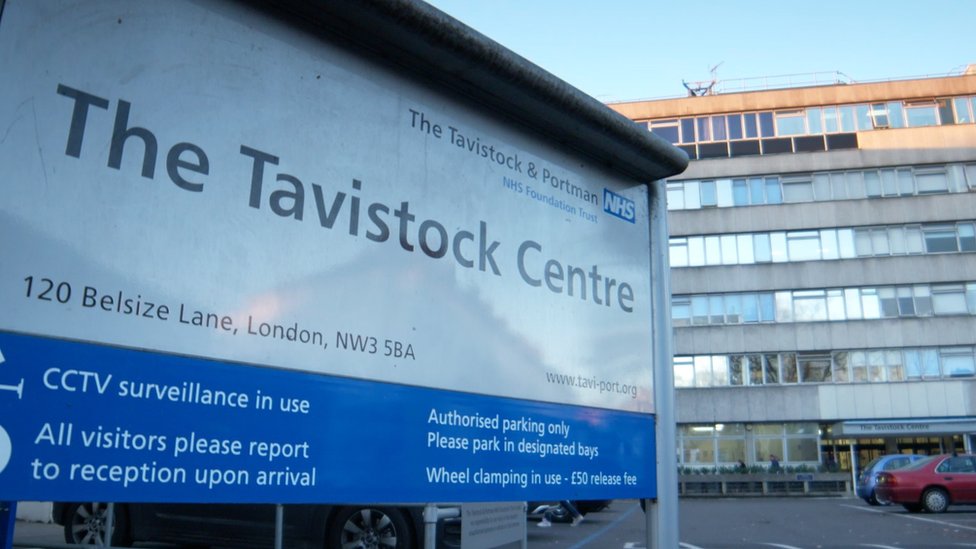
What are the rules around women-only spaces?
There has been debate about the rights of transgender people and there is a range of views as to how society can best balance the needs of different groups.
Much of the debate has focused on access to women-only spaces such as toilets, changing rooms, domestic violence refuges and prisons.
But single-sex service providers can choose to exclude transgender people where there are ''proportionate means of achieving a legitimate aim''.
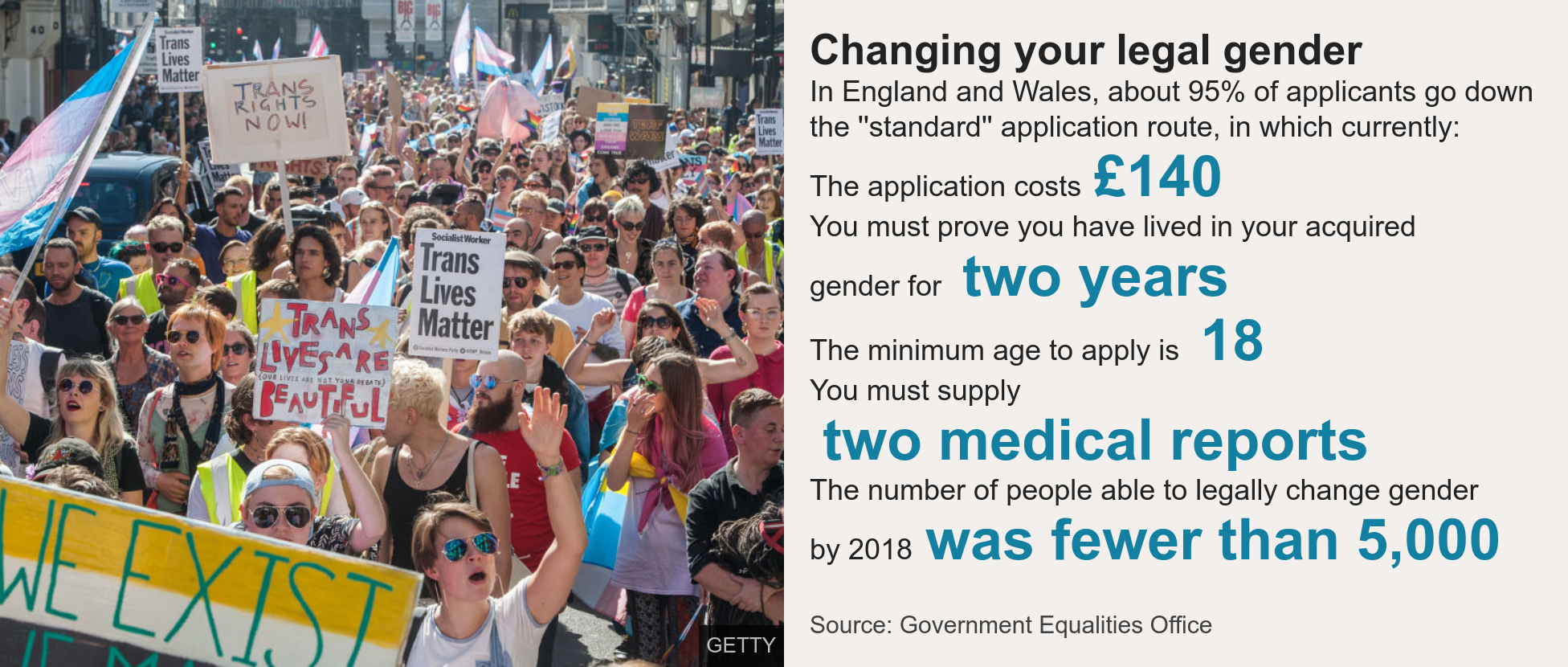
Legally changing your gender does not guarantee entry to single-sex spaces, the government says, and the consultation would never have resulted in these exemptions being removed.
However, some have raised concerns about self-identification and suggest the law is not clearly understood by service providers.
They also argue women's wider sex-based rights are under threat.
''Women have fought for sex-based protections and services, female spaces and female associations, and schemes to promote women in business, politics and society. These are all under threat from the concept of self-identification.''
But others say the rights of transgender people should never have been up for discussion.
''No trans person should have to explain, on behalf of an entire community, that we pose no danger. It should go without saying.''
Some say removing the medical requirement would have served to make trans people's lives easier, and had little impact on the majority of single-sex spaces, which rarely require someone to prove they are a man or a woman.
Gender identity and children
Another area where there has been controversy is the treatment of children who question their gender identity.
These feelings are "reasonably common", the NHS says. For a small percentage, they will persist, and may lead to a referral to the under-18s Gender Identity Development Service (Gids).
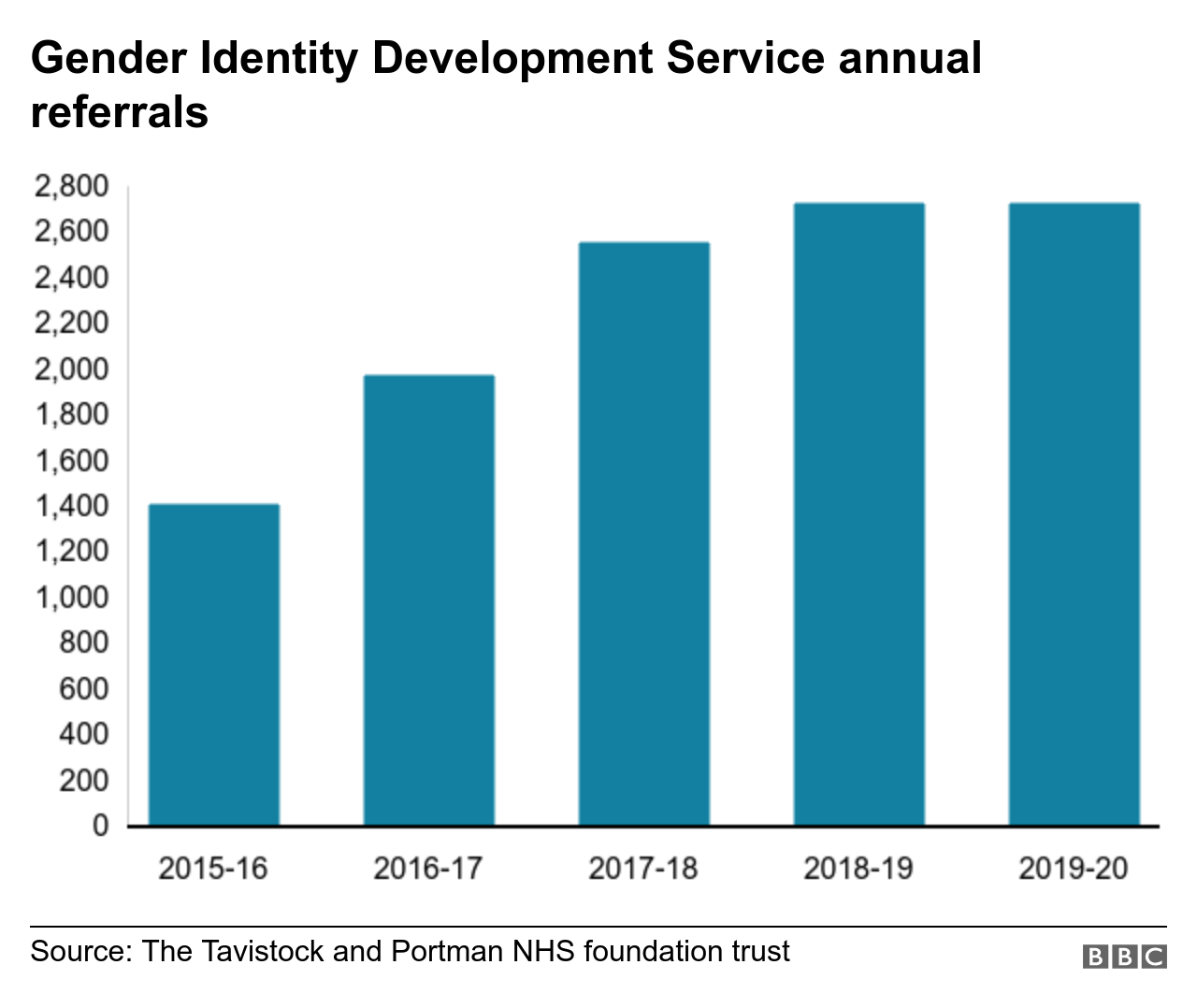
Applicants must be over 18 to obtain a gender recognition certificate, although this will be lowered to 16 in Scotland under proposed changes.
"What" - Google News
September 22, 2020 at 05:16PM
https://ift.tt/3hU9bOk
What does transgender mean and what does the law say? - BBC News
"What" - Google News
https://ift.tt/3aVokM1
https://ift.tt/2Wij67R
Bagikan Berita Ini














0 Response to "What does transgender mean and what does the law say? - BBC News"
Post a Comment